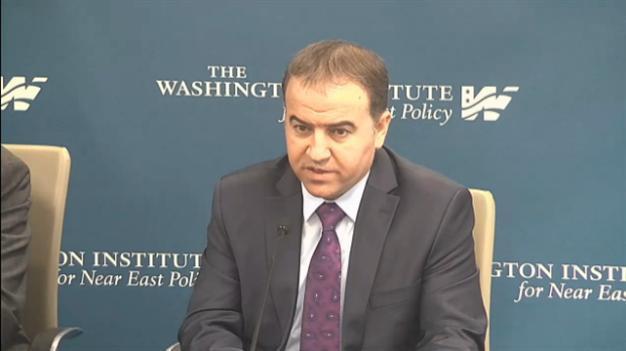Peshmerga needs $300M a month to fight ISIL: Official
WASHINGTON – Anadolu Agency
 Kurdish peshmerga forces need a short-term emergency fund of $300 million a month from the U.S. to fight the Islamic State of Iraq and the Levant (ISIL), a Kurdish Iraqi official said on Feb. 8.
Kurdish peshmerga forces need a short-term emergency fund of $300 million a month from the U.S. to fight the Islamic State of Iraq and the Levant (ISIL), a Kurdish Iraqi official said on Feb. 8. The money is needed “for their salaries, and the logistics and the transportations for these efforts against ISIS [ISIL],” said Hemin Hawrami, foreign policy advisor to northern Iraq’s Kurdish Regional Government (KRG) President Masoud Barzani.
Speaking at the Washington Institute think tank, Hawrami said the KRG is unable to provide basic needs for the peshmerga such as food and winter clothing, nor have the salaries of fighters been paid since last September.
“We don’t have that,” he said. “The amount we can generate in Kurdistan region is $500 million. That’s it for everything,” he said of the total funds of his government.
He also stressed that the peshmerga could defeat ISIL if the KRG received financial assistance from the U.S., which has responded in a “positive” manner to the issue. Hawrami envisions the peshmerga as a force to confront regional issues.
“We want Kurdistani peshmergas to outgun ISIS. Up to this moment, if you take away the airstrikes, still ISIS is outgunning the peshmergas,” he said.
“Why shouldn’t peshmergas have tanks? Why shouldn’t peshmergas have enough quantities of the anti-tank missiles,” he asked.
Hawrami said peshmerga fighters were the only ground forces that have proved able to clear areas of ISIL control.
“ISIS has not been able to take back one meter of the areas that peshmerga forces have cleared,” he said.
Though the group has fought alongside Iraqi security forces, peshmerga forces have complained about their lack of similar equipment.
A spokesman for the Iraqi embassy in the U.S. told Anadolu Agency that Baghdad has never withheld U.S. military aid to the peshmerga.
“We continue to provide military and logistic support to all Iraqi forces that are battling Daesh [ISIL] including the peshmerga,” said Ali Al-Mawlawi, adding that the U.S. understands the “importance of respecting Iraq’s sovereignty,” and coordinated any provisions of military aid with Baghdad.
Military aid aside, there exists political differences between Iraq’s central government and the KRG.
A referendum will be held in the second half of 2016 to determine if the people of the Kurdistan region want to separate from Iraq’s central government, according to Hawrami.
Dictatorship and federalism has failed to find a solution between the Iraqi government and the KRG for more than 40 years, he said, and holding a referendum was “a new formula” for a peaceful solution.
“This new formula must be based on peaceful ways on dialogue ways and negotiations, talks with Baghdad,” he said.
He acknowledged that it was not clear how the voting process on the referendum would take place as parts of northern Iraq are still under siege by ISIL.
Responding to Hawrami, embassy spokesman al-Mawlawi said that all political parties could express their political aspirations, but “the central government has a fundamental obligation to uphold the constitution.”
















